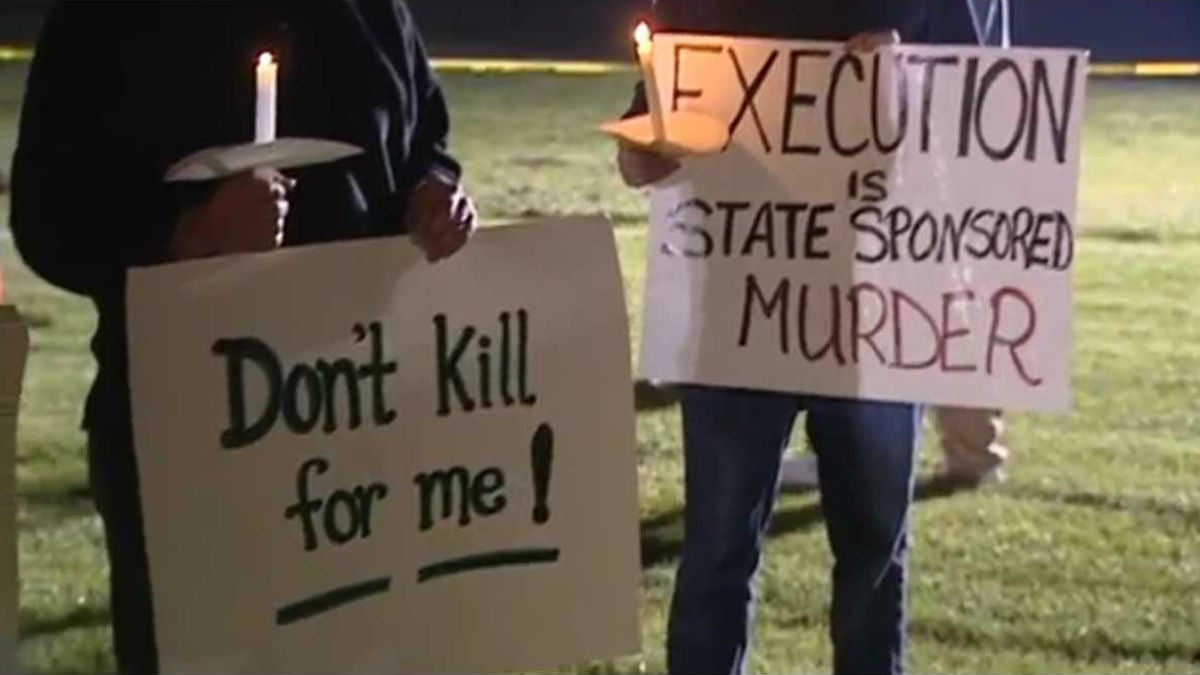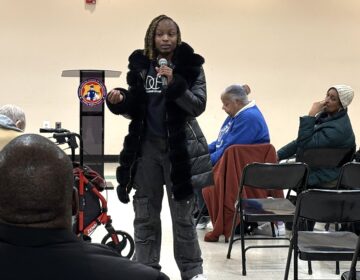Delaware reacts to Supreme Court death penalty ruling

(FILE/NewsWorks)
Delaware lawmakers and legal experts are reacting to the state’s Supreme Court decision on the death penalty.
Delaware’s Supreme Court ruled the death penalty unconstitutional Tuesday. Now legislators are reacting to the decision, and criminal justice experts discuss what this means for the court system and those on death row.
Delaware’s Supreme Court said the state’s plan for imposing a death sentence violates the 6th amendment right to a jury trial, because it left the final decision of sentencing to the judge and removed it from the jury’s hands.
For years Delaware activists and lawmakers have tried to abolish the death penalty. In January, State Rep. Sean Lynn’s repeal bill was defeated in the general assembly.
“We have an obligation to defend these potential death sentences, so it’s a huge burden lifted from us, and we think the death penalty is morally wrong, so for those reasons we’re delighted with the decision by the Delaware Supreme Court,” said Brendan O’Neill, chief defender for Delaware’s Office of Defense Services.
O’Neill said the approximately 30 people currently in or awaiting trial for murder charges no longer face the death penalty, and the maximum sentence they can receive is life in prison.
However, it is yet to be seen what will happen to the 13 individuals already on death row.
“Each of those individuals is already represented by a law and the lawyers of those individuals,” O’Neill said. “I’m sure, will be trying to figure out the best way to get the court to apply the decision retroactively.”
Those in favor of the death penalty, like State Sen. Colin Bonini, R-Dover, said they’re concerned for Delawareans’ safety. He said the decision is part of a “left-leaning political culture.”
“They put felons before victims, plain and simple,” Bonini said in a statement.
“What are we doing to deter crime? Our largest city is called ‘Murder Town,’ yet we don’t think there are crimes heinous enough to impose the ultimate penalty? What are we giving future criminals to think about as a deterrent? Serious crimes deserve serious punishment.” Bonini is seeking the republican nomination for governor in Delaware’s September 13th primary.
O’Neill said the ruling could be appealed if the Attorney General’s Office seeks a petition.
“There is a possibility of a review,” he said. “It’s discretionary on the Attorney General’s Office to seek this review, and then it’s discretionary by the United States Supreme Court to accept the case for consideration.”
O’Neill said if legislators wanted to reinstate the death penalty they would have to create a new death penalty statute from scratch.
Bonini is asking Attorney General Matt Denn, D-Delaware, to appeal, and if he believes necessary, will call for the state legislature to bring back the death penalty as soon as possible.
“It doesn’t help anyone when Delaware is perceived as soft on crime,” he said.
O’Neill, however, said the court decision is a positive change for Delaware.
“These clients aren’t going free, they’re still facing murder charges and facing the possibility of life without parole, so the obligation continues, except we take away the specter of a potential death sentence out of the mix—and that’s good,” he said.
“It’s a very taxing exercise seeking death, and it’s going to save time, it’s going to save energy, it’s going to save effort, it’s going to save resources. And given there’s been little evidence, if any, the death penalty has a deterrent effect I think we’re better off without it.”
WHYY is your source for fact-based, in-depth journalism and information. As a nonprofit organization, we rely on financial support from readers like you. Please give today.





